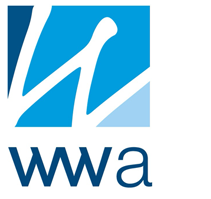08 Mar Dispute Resolution: Thoughts on Adjudication

The construction industry is known for the number of disputes that arise in it, and having spent all my working life, not an insignificant number of years, in the sector I’ve been involved in a good number. I’ve spent a large part of the last 15 years concentrating on dispute resolution and Adjudication in particular, I thought I’d use my first blog to share some of my thoughts on the process.
For those who don’t know, Adjudication in the construction industry is a statutory dispute resolution procedure, introduced by the Housing Grants, Construction and Regeneration Act 1996 and amended by the Local Democracy, Economic Development and Construction Act, introduced in October 2011. Adjudication has grown in its popularity since its introduction and consequently in the past 20 years, over 31,000 disputes have been referred for resolution.
Prior to the introduction of Adjudication, disreputable clients would regularly fail to pay an innocent party, often with a dismissive attitude exemplified by “So, sue me!” Of course, such people knew that any formal legal proceedings would take many months to materialise, by which time the injured party would often have been put out of business. Where this didn’t happen cases that did go to Arbitration or Litigation would often be drawn out affairs involving significant time commitments and even more significant cost as legal fees would soon mount up.
A better alternative was therefore needed, and when Adjudication was introduced it was widely welcomed within the construction industry. The process offers a quicker and much more cost-effective method of resolving disputes.
So, what is Adjudication and how does it accomplish these goals?
The intention of the process is to ensure that a decision is reached within 28 days, although this can be extended to 42 days and regularly is. Any adjudication starts with the issue of a Notice of Intent to Submit a Dispute to Adjudication which sets out the basic details of the dispute and the parties involved. Within 7 days of this notice being issued an Adjudicator must be appointed, often by a nominating body identified in the contract and the party raising their dispute must submit their case (The Referral Notice). The defending party then has 7 days, or longer if the determined appropriate by the Adjudicator, to set out their defence (The Response). Once both parties have submitted their documents, the Adjudicator has 14 days to make his decision.
This all seems simple enough, although the reality is that often the 28-day period is not achieved. With the party raising the dispute able to prepare their case in advance of serving notice, the detail included means that the defending party is generally given a period of up to 14 days to respond. The Adjudicator may also allow further arguments in order to address issues raised in the referral and the response. The referring party can also agree to extend the time for the Adjudicators decision by 14 days, or if both parties agree this can be extended further.
Despite the potential extension of the process, in the majority of cases, Adjudication is still substantially quicker and less costly than the alternatives of Arbitration and Litigation. Whilst not a flawless process, and I will comment more on this in future blogs, the introduction of Adjudication has definitely served its purpose and provides a valuable means of resolving disputes in the Construction industry, accelerating payments to those who would previously have been prejudiced.
For anyone who would like to know more about the process feel free to get in touch with me at rolandtiplady@wwa.uk.com
Roland Tiplady
Roland has over 45 years experience acting as a Quantity Surveyor and Dispute Resolution expert in the construction industry. To find our more about our Dispute Resolution services click here!



